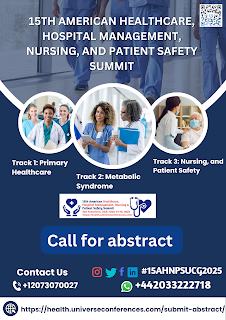What is oncology?
A subspecialty of medicine called oncology is focused on examining, diagnosing, and treating those who have cancer or are at risk of developing it. It contains.
Even though
the terms "Once" and "logy" both refer to studies, not all
tumours result in masses. There are numerous cancers that can develop from
blood cells, connective tissue, or epithelial cells, including those seen in
the breast ducts and lungs and sarcomas (such as leukaemias and lymphomas).
No two tumours are comparable because they differ on a molecular level, even when they develop in the same tissue (like the lungs, for example). Contrary to benign diseases or tumours, a cancer cell is defined by a number of characteristics.
Cancer is
brought on by a cell's unchecked growth and reproduction, which is started by a
series of mutations in a healthy cell. There are characteristics of cancer that
set it apart from harmless illnesses. In addition to growing uncontrollably,
cancer cells also work to develop new blood vessels to supply their
development, fend off death, and do a variety of other things.
Cancer cells
frequently lack adhesion molecules, which are sticky chemicals that hold the
cells in place. The cells can then spread (metastasize) to different parts of
the body as a result. Actually, the bulk of cancer-related deaths is brought
on by tumour metastasis (at least solid tumours).
Even before
humans arrived on the planet, researchers have found signs of cancerous
(malignant) tumours in animals. The sickness was first described in writing in
3000 BC, but fossils and mummies have revealed evidence from earlier times.
Medical
oncology, which includes chemotherapy, immunotherapy, hormone therapy, and
other medication treatments for cancer, radiation oncology, surgical oncology,
and palliative medicine, are all forms of preventative medicine.
A physician
having specialised training in the detection and management of cancer is known
as an oncologist. Some oncologists specialise in a certain approach to treating
cancer.
As a member
of a multidisciplinary team, the oncologist works with other professionals to
collaborate and coordinate care for the patient.
In addition
to providing clinical care, oncologists also work in the fields of health
promotion, clinical teaching, ethics, and cancer research (including therapies,
biology, epidemiology, and research on clinical outcomes).
What are the different types ofoncologists?
A medical
oncologist uses chemotherapy and other drugs, such as hormone therapy and
immunotherapy, to treat cancer.
A surgical
oncologist performs the operation to remove the tumour or malignant tissue.
They might also do biopsies (see below).
Radiation
oncologist: A radiation oncologist is an expert in using radiation treatment to
treat cancer (radiotherapy).
When to see a cancer specialist:
If a patient has cancer or is suspected of having the disease, their general practitioner (GP) may refer them to an oncologist. A biopsy (tissue sample) will be taken by a pathologist who will examine it. Several diagnostic tests and scans may be performed if it is proven to be carcinogenic in order to identify cancer's size and whether it has spread. To suggest a course of treatment for specific patients, oncologists collaborate.
Any time, patients
are free to consult with other medical professionals or teams. Patients can
request that their medical history be forwarded to the doctor offering a
second opinion, or they can request that their GP or specialist refer them to
other specialists.
Contact
Us:-
Reach out to us: https://breastcancerpathology.universeconferences.com/
Mail:
pathology@universeconferences.com| info@utilitarianconferences.com | breastcancer@ucgconferences.com
Whatsapp: +442033222718 Call: +12073070027
Previous
Blog Post Links:-
· https://kikoxp.com/posts/11632
· https://www.blogger.com/blog/post/edit/3238443600245550728/7246086302346767315
· 10th World Breast Pathology and Breast Cancer Conference |
LinkedIn
· https://wordpress.com/post/breastpath2022.wordpress.com/6
· https://medium.com/@elizaedwards2021/breast-cancer-disease-f0324f19b8a2
· https://www.blogger.com/blog/posts/3238443600245550728
· https://www.reddit.com/user/breastcancerucg1/comments/th0lj8/breast_cancer_disease/
· https://www.blogger.com/blog/post/edit/3238443600245550728/5272365125212681129
· https://kikoxp.com/posts/10351
https://www.tumblr.com/dashboard
https://medium.com/@Andreaross01/breast-cancer-in-men-326a71409c5
https://www.linkedin.com/pulse/breast-cancer-men-dr-priya-pujhari
https://www.linkedin.com/pulse/breast-cancer-symptoms-causes-dr-priya-pujhari
.png)
.png)


Comments
Post a Comment